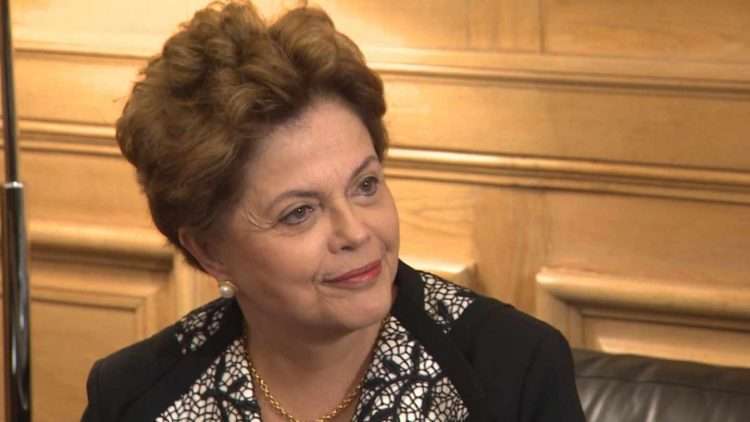World personalities have taken sides on Cuba and the current situation that the country is going through with the increase of the U.S. embargo and with regard to the opposition march called by the Archipiélago group for next November 15.
These days two letters have been released with different projections on the current Cuban context, which have been endorsed indistinctly by intellectuals, politicians, artists, journalists and other well-known figures, in accordance with their political projection and appreciation of the island’s reality.
A letter dated this November 10 and published, among other means, by the official website Cubadebate, denounces the U.S. government’s blockade policy toward Cuba and Washington’s support for the opposition and internal subversion in the Caribbean country “with the sole purpose of ending the current political system and establishing one that responds to its unique interests.”
This letter — an initiative of Spanish-French journalist Ignacio Ramonet, Colombian writer based in France Hernando Calvo Ospina, Argentine sociologist Atilio Borón, and Mexican philosopher Fernando Buen Abad — has been signed by more than a hundred figures, including former presidents Dilma Roussef (Brazil) and Rafael Correa (Ecuador), Nobel Peace Prize Adolfo Pérez Esquivel (Argentina), musician Chico Buarque (Brazil) and Beinusz Smukler, from the American Association of Jurists (U.S.).
It asserts that the objective of the U.S. embargo and its most recent measures “has not changed: to suffocate the Cuban economy and cause suffering to its population so that it revolts against the revolutionary government.”
In addition, the letter affirms that “for decades the U.S. government has been investing millions of dollars in the creation of ‘dissidents,’ of ‘opponents,’ of all kinds, irrelevant within Cuba but praised by the international press,” who “feel supported and protected by Washington, and using as a flag the difficult economic situation due to the blockade (a situation increased by COVID, as in all other nations), they call for subversive demonstrations.”
“They do so disregarding the laws in force that prohibit any attack on the current political system, as is logical in all the states of the world. And much more when it is incited by a foreign power,” assert the signatories, according to which, with its policy, the United States seeks to” substantiate the application of the criminal blockade” and “Cuba’s isolation, one of the primary objectives being that the European Union break its relations.”
In closing, they call on the White House to end the embargo and stop “its attempts to destabilize a nation that has never taken action against its security at any time; that much less has interfered in its internal affairs, nor calling on the American public to subvert the established order, despite the multiple and serious internal social problems this world power has.”
On the other hand, about 80 international personalities opposed to the Havana government publicly supported “the Cuban people in their fight for freedom and democracy” as well as the right to demonstrate peacefully on November 15, as announced by the organizers from the Archipiélago opposition platform.
In a letter headed by Nobel Prize for Literature Mario Vargas Llosa and cited by the Spanish agency EFE, former presidents, politicians, representatives of the cultural world and journalists assure that Cubans “have the right to choose their future,” since “their demands are legitimate and necessary for the construction of the rule of law on the island.”
El premio Nobel Mario Vargas Llosa, junto a múltiples presidentes, gobernadores, ministros, políticos de alto nivel, académicos y periodistas, de distintas partes del mundo, manifiestan mediante esta Carta su respaldo a las protestas pacíficas del 15N en Cuba. pic.twitter.com/KjXgQ8b0Mi
— Fundación Internacional para la Libertad (FIL) (@FundacionFIL) November 9, 2021
The signatories base themselves on “international law, the Inter-American Democratic Charter and the Universal Declaration of Human Rights” and also accompany “the request for the release of political prisoners and prisoners of conscience, especially those arrested for peaceful demonstrations on July 11th.”
The letter emphasizes that “since 1952, Cubans have not participated in free elections and several generations have been persecuted for the exercise of journalism and freedom of expression, as have all kinds of human rights activists within the island,” while affirming that “the people of Cuba raised a cry for freedom and democracy on July 11, showing the international community that Cubans are standing up in the struggle for the conquest of their rights and the construction of a democracy.”
According to its organizers, the civic march “for change” called for November 15 aims to demonstrate against violence and demand the release of those imprisoned for participating in the anti-government protests of July 11.
The Cuban government, for its part, has considered it illegal and “a provocation” framed in the strategy of “regime change” for Cuba “rehearsed in other countries” by the United States and has exposed through official media links of some of its organizers with personalities and organizations that have advocated the overthrow of the Cuban government for many years.
EFE/OnCuba









